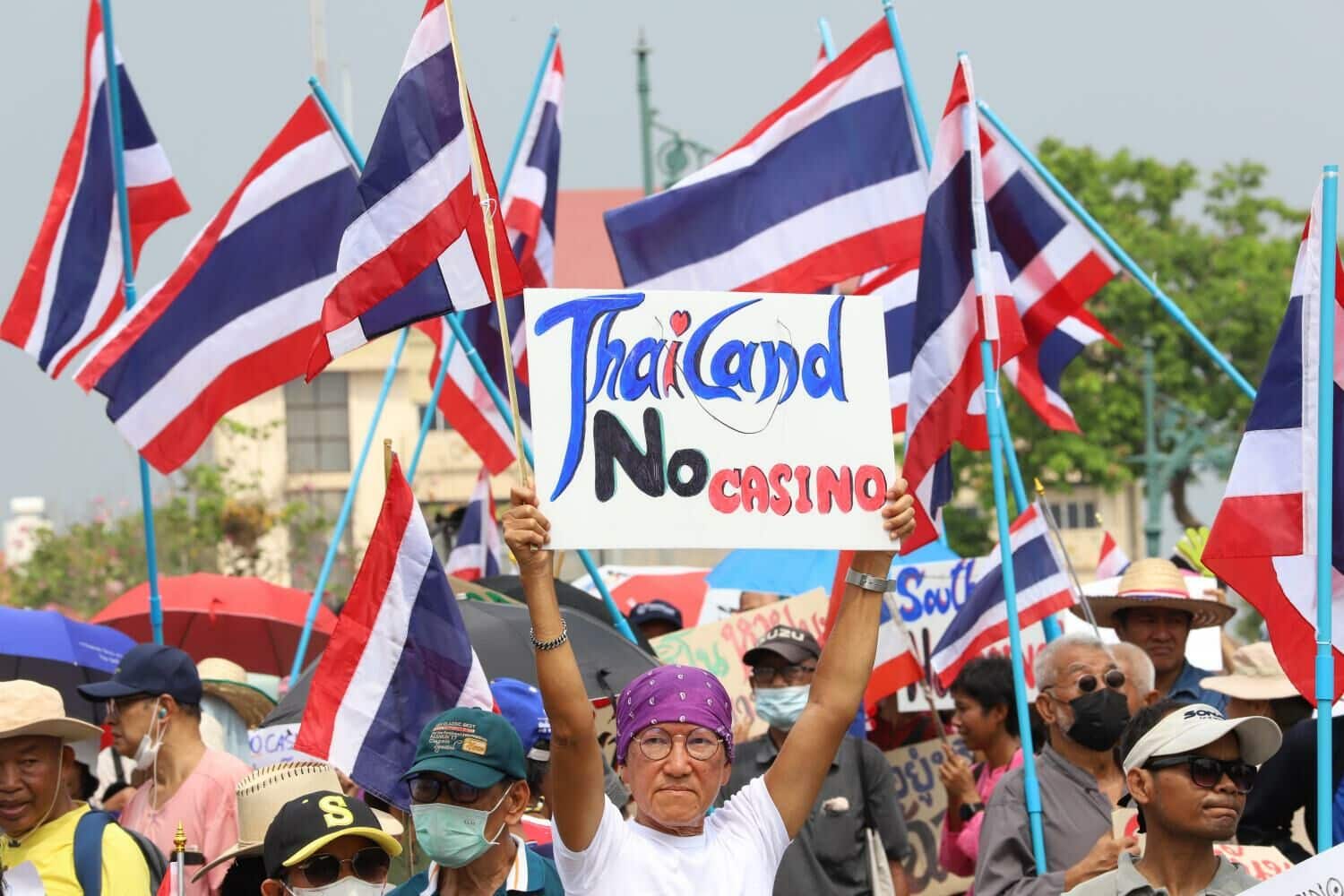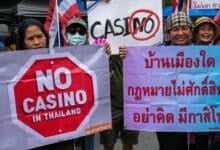Betting on a bust! Former charter crew slam casino complex bill

An open letter from 30 ex-charter drafters has sent shockwaves through Bangkok’s corridors of power, as they warn that backing the casino-entertainment complex bill could breach ethical guidelines and jeopardise Thailand’s national strategy.
The bill, which is set for a parliamentary vote on Wednesday’s first reading, has drawn fierce criticism from the group, including prominent experts who helped draft the 2007 charter.
In their letter to House Speaker Wan Muhamad Noor Matha and Senate Speaker Mongkol Surasatja, they outlined six explosive reasons for withdrawing the bill from parliament.
Firstly, the drafters argued that the bill is neither urgent nor essential.
“The ruling Pheu Thai Party and its coalition partners did not campaign on legalising casinos, so they have no obligation to implement this policy,” they stated, noting that the idea was initially suggested by former premier Thaksin Shinawatra before it was “embraced” by the party.
They further warned that steps taken to prepare or implement the draft law may breach Sections 65 and 75 of the constitution and the National Strategy Act. Section 65 mandates that government actions align with the 20-year national strategy, while Section 75 calls for a fair distribution of economic benefits and the promotion of self-reliance based on the sufficiency principle.
“The bill opposes the National Strategy Act’s goals for long-term economic security and prosperity,” the letter stated.

Deputy Prime Minister Phumtham Wechayachai recently defended the measure as crucial for countering rising US tariffs on Thai goods, Bangkok Post reported. However, the former charter writers cautioned that lawmakers supporting the bill could be accused of abusing constitutional powers and breaching ethical standards, actions punishable by a lifetime political ban.
The drafters also highlighted several other concerns. They warned that national assets, such as state lands, might be misused for casinos and entertainment complexes without assured benefits, potentially violating state asset utilisation laws.
They claimed the bill could cater to criminal and gambling interests, worsening economic conditions and boosting crime rates. Additionally, increased access to online gambling was seen as a recipe for deeper national gambling problems, especially since the proposed law lacks measures to protect against addiction.
The group lambasted the draft law for lacking the moral value and integrity expected of politicians in a democratic society. They criticised it for generating vested interests while ignoring thorough public debate and social resistance.
Among the signatories were experts like Jaran Pakdithanakul, Chirmsak Pinthong, and Vicha Mahakun. The Chiang Mai Doctors’ Group yesterday, April 6, also voiced their criticism, warning of long-term impacts on the younger generation.

Wirangrong Dabbaransi, head of the Network of Universities for Reform, has called on opponents to gather at Chulalongkorn University on Tuesday to protest the bill.
In response, Pheu Thai Secretary General Sorawong Thienthong, also minister of tourism and sports, urged the public to refrain from mischaracterising the measure as a “casino law.”
He emphasised that the bill is still under review and not finalised, with coalition parties agreeing to its careful deliberation in parliament. Pheu Thai list-MP Anusorn Iamsa-ard further assured that the bill would not be rushed.
As the debate rages on, the future of this controversial bill hangs in the balance, with the potential to alter Thailand’s political and economic landscape for years to come.
Latest Thailand News
Follow The Thaiger on Google News:


























